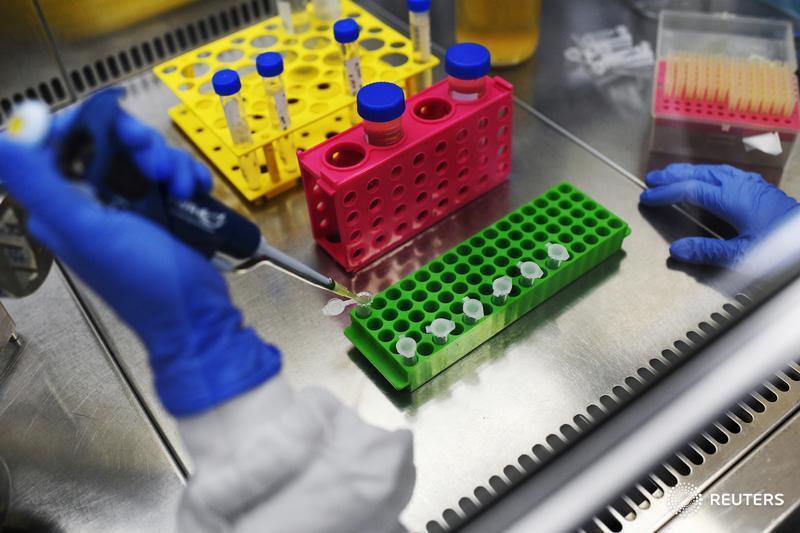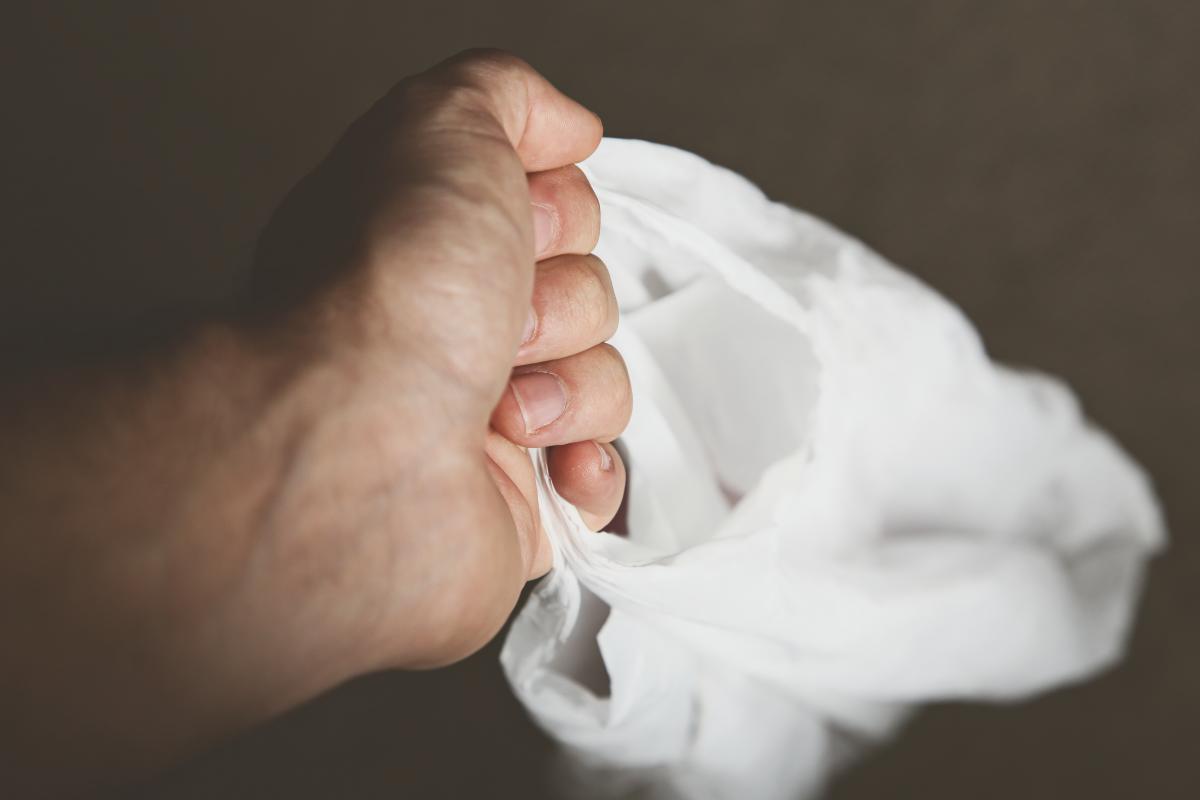Oliver Balch reports on how business has responded during an unprecedented week for the global economy
With much of the world being asked to self-quarantine, people are understandably worried about keeping their larders full and their families fed. Fears that the supermarket shelves may grow sparse has led to panic-buying in countries like the UK and the US, which, in an act of self-fulfilling prophecy, has led to precisely the empty aisles that people feared. Around the world, many food retailers have had to restrict purchases of essential items or limit product ranges to ensure stocks don’t run out. At the same time, moves by retailers to beef up home delivery services are under way – albeit often with restrictions on the number of products that can be purchased (UK retailer Tesco has capped online orders at 80 items).
For now, governments have been keen to stress that food supplies are essentially resilient, while acknowledging that pressure on production, processing, distribution and sales is far higher than usual. In the European Union, for instance, border restrictions in some countries have led to the delivery of foodstuffs being delayed or blocked. In a joint statement, the industry body Food Drink Europe called on government authorities to keep Europe’s borders open. In a video conference this week, EU agricultural ministers confirmed the introduction of green lanes to ensure border checks for priority goods would last no more than 15 minutes.
EU farmers and food companies are also worried about accessing sufficient labour as freedom of movement grinds to a halt across the 26-nation trade bloc.According to the farmers’ association Copa-Cogeca, a drop in seasonal worker numbers due to Covid-19 could lead to “devastating” impacts on food production that last “well beyond this year”. Italy, for example, the EU country most hit by the pandemic to date, receives around 370,000 overseas workers during harvest season, accounting for more than 25% of its total food production. To help food producers, the European Commission has adopted a temporary framework for state aid, enabling EU nation states to assist farms and food processors to the tune of €100,000 per farm and €800,000, respectively.
Should global food supplies drop, then the worry is that prices will rise. A 6% weekly rise in the global benchmark Chicago wheat has been widely cited as early evidence of food price inflation. Rice prices in Thailand, the world’s second-biggest grain exporter, have also climbed to their highest rate for more than six years. More promisingly, recent projections from the US Department of Agriculture suggest an annual rise of around 10m tonnes in global wheat production in the year up to June, to 287m tonnes. That said, production increases will make little difference to food security if commodity-producing nations start stockpiling, as some experts fear, and as occurred during the 2007-2008 financial crisis. Kazakhstan, Vietnam, and Serbia, for example, are reported to have already placed restrictions on the export of wheat powder, rice and sunflower oil, respectively.
In the event of disturbances to global food supply, it will be the poor who most feel it, warns the UN-backed Food and Agriculture Organisation. In an online address, the FAO’s director-general, Qu Dongyu, called on governments to strengthen social safety mechanisms to ensure food security for the old and vulnerable. Companies, large and small, have also been heeding such calls. Swiss food giant, Nestlé recently committed to donate food, medical nutrition products, and bottled water to those most affected by the pandemic. In the Philippines, meanwhile, Coca-Cola has suspended its advertising and is iinvesting its 150m-peso ($2.94m) ad budget on free beverages for health workers and food parcels for vulnerable families. In India, food and restaurant app Zomato has launched a public donation initiative to fund food ‘ration kits’ for some of the country’s 450 million daily wage-earners who have lost their incomes. The scheme, which is being rolled out across 26 cities, raised 80m rupees ($1.07m) in its first two days.
Microsoft among tech giants mobilising to fight the virus

Credit Lucas Landon/Reuters
THE COVID-19 crisis has galvanised the tech sector to turn its core competencies to help in the response. From Microsoft founder Bill Gates donating $50m towards the development of a vaccine, to social media giant Twitter pledging to remove misinformation about Covid-19 from its platform, the responses have been bold and varied. Many examples relate to tracking and testing the spread of infections. Volunteers from Apple, Amazon and Google helped Boston Children’s Hospital and Harvard Medical School design a web-based service, called Covid Near You, that enables US residents to report Covid-19 symptoms and testing activity. Healthtech firm Axial, meanwhile, has donated an artificial intelligence-driven platform to the UK’s National Health Service that automates the analysis of CT scan images in 10 seconds (as opposed to the 30 minutes usually required by doctors).
Examples of tech platforms informing people about Covid-19 and keeping people connected during domestic confinement are also numerous. Search engine Google, for instance, has won plaudits for launching a dedicated website for coronavirus information and resources. The tech giant is also directing users to authoritative information from health authorities via its search function. The move follows Bing’s development of an interactive map that tracks the spread of the infection. As for staying in touch, Microsoft has offered a six-month free trial of its Teams conferencing service, while Google has said premium features of its Hangouts Meet platform will be made free to customers (including education institutions) with standard packages.
Such contributions are not limited to the tech sector. UK pharmaceutical giant GSK has donated $10m to the World Health Organisation to support its work in detecting and managing the pandemic. Among other measures, the drugs company is also making available compounds from its library to help a collaborative research project, led by the Bill and Melinda Gates Foundation, to accelerate therapeutic solutions to the virus. Anglo-Dutch consumer goods corporation Unilever, meanwhile, has said it will provide free soap, sanitiser, bleach and food to the value of €100m. Around half of this donation will be distributed via the World Economic Forum’s Covid Action Platform, which aims to mobilise business support to deal with the crisis. Unilever is also providing $500m in cash flow relief to support hard-hit suppliers and small-scale retail customers in its value chain.
In other moves, companies are repurposing their resources – both physical and intellectual – in response to the call for essential health products and equipment. UK engineering firm Dyson has adapted its digital motor technology to design and produce a ventilator for use by the NHS. In the US, GM and Tesla have both pledged to do something similar, while Ford is working with 3M and GE Healthcare to help produce respirators, face masks and other medical equipment. Hand cleanser has become another rallying point for companies. Following the lead set by LVMH and L’Oréal (see previous Cheat Sheet), global rum brand Bacardi is adapting its manufacturing facilities to help produce 1.1. million litres of hand sanitising gel. Meanwhile, ChargedUp, Europe’s largest phone charging network, has unveiled plans to turn its UK charging stations into CleanedUp hand sanitiser stations.
Plastics producers accused of exploiting the pandemic

FOR ALL THE solidarity that business has shown in the face of the Covid-19 pandemic, not all the news has been positive. Green campaigners in the US maintain that plastic producers are funding op-eds and other news stories suggesting that consumers are more liable to contract Covid-19 from reusable carrier bags than from single-use plastic bags. Greenpeace USA accused the plastic industry of working to “exploit our fears for profits”.
Campaigners are also found fault with the World Bank’s announcement that it would release $14bn to support the global response to Covid-19. Corporate Accountability, a US non-profit, notes that $8bn of the total funds is destined for private sector players, particularly banks. According to the campaign group, the aid package marks an attempt to “advance a corporate agenda” and to push recipient countries to adopt neoliberal policies. In Brazil, meanwhile, it is the government that is coming in for criticism, accused by indigenous peoples in the Amazon for leaving them “defenceless” in the face of the pandemic.
For companies wanting to do the right thing in light of Covid-19 but unsure of what the law requires, Practical Law has published an online toolkit to help promote compliance. Designed for attorneys and professionals located in the UK, the US, China, Australia, Canada and New Zealand, the free-to-access Global Coronavirus Toolkit comprises practice notes, standard documents, checklists and other resources relating to public health emergency and disaster preparedness. UK work-life balance charity Working Families, meanwhile, has released a practical guide for employers looking to support staff who are now compelled to work from home. The free resource offers a step-by-step plan for training and development, communication, remote working team protocols, and setting objectives.

